第17章 FATHER APOLLINARIS(2)
This it is to have had a Protestant education. And suddenly, on turning a corner, fear took hold on me from head to foot - slavish, superstitious fear; and though I did not stop in my advance, yet I went on slowly, like a man who should have passed a bourne unnoticed, and strayed into the country of the dead. For there, upon the narrow new-made road, between the stripling pines, was a mediaeval friar, fighting with a barrowful of turfs. Every Sunday of my childhood I used to study the Hermits of Marco Sadeler - enchanting prints, full of wood and field and mediaeval landscapes, as large as a county, for the imagination to go a-travelling in; and here, sure enough, was one of Marco Sadeler's heroes. He was robed in white like any spectre, and the hood falling back, in the instancy of his contention with the barrow, disclosed a pate as bald and yellow as a skull. He might have been buried any time these thousand years, and all the lively parts of him resolved into earth and broken up with the farmer's harrow.
I was troubled besides in my mind as to etiquette. Durst I address a person who was under a vow of silence? Clearly not. But drawing near, I doffed my cap to him with a far-away superstitious reverence. He nodded back, and cheerfully addressed me. Was I going to the monastery? Who was I? An Englishman? Ah, an Irishman, then?
'No,' I said, 'a Scotsman.'
A Scotsman? Ah, he had never seen a Scotsman before. And he looked me all over, his good, honest, brawny countenance shining with interest, as a boy might look upon a lion or an alligator.
From him I learned with disgust that I could not be received at Our Lady of the Snows; I might get a meal, perhaps, but that was all.
And then, as our talk ran on, and it turned out that I was not a pedlar, but a literary man, who drew landscapes and was going to write a book, he changed his manner of thinking as to my reception (for I fear they respect persons even in a Trappist monastery), and told me I must be sure to ask for the Father Prior, and state my case to him in full. On second thoughts he determined to go down with me himself; he thought he could manage for me better. Might he say that I was a geographer?
No; I thought, in the interests of truth, he positively might not.
'Very well, then' (with disappointment), 'an author.'
It appeared he had been in a seminary with six young Irishmen, all priests long since, who had received newspapers and kept him informed of the state of ecclesiastical affairs in England. And he asked me eagerly after Dr. Pusey, for whose conversion the good man had continued ever since to pray night and morning.
'I thought he was very near the truth,' he said; 'and he will reach it yet; there is so much virtue in prayer.'
He must be a stiff, ungodly Protestant who can take anything but pleasure in this kind and hopeful story. While he was thus near the subject, the good father asked me if I were a Christian; and when he found I was not, or not after his way, he glossed it over with great good-will.
The road which we were following, and which this stalwart father had made with his own two hands within the space of a year, came to a corner, and showed us some white buildings a little farther on beyond the wood. At the same time, the bell once more sounded abroad. We were hard upon the monastery. Father Apollinaris (for that was my companion's name) stopped me.
'I must not speak to you down there,' he said. 'Ask for the Brother Porter, and all will be well. But try to see me as you go out again through the wood, where I may speak to you. I am charmed to have made your acquaintance.'
And then suddenly raising his arms, flapping his fingers, and crying out twice, 'I must not speak, I must not speak!' he ran away in front of me, and disappeared into the monastery door.
I own this somewhat ghastly eccentricity went a good way to revive my terrors. But where one was so good and simple, why should not all be alike? I took heart of grace, and went forward to the gate as fast as Modestine, who seemed to have a disaffection for monasteries, would permit. It was the first door, in my acquaintance of her, which she had not shown an indecent haste to enter. I summoned the place in form, though with a quaking heart.
Father Michael, the Father Hospitaller, and a pair of brown-robed brothers came to the gate and spoke with me a while. I think my sack was the great attraction; it had already beguiled the heart of poor Apollinaris, who had charged me on my life to show it to the Father Prior, But whether it was my address, or the sack, or the idea speedily published among that part of the brotherhood who attend on strangers that I was not a pedlar after all, I found no difficulty as to my reception. Modestine was led away by a layman to the stables, and I and my pack were received into Our Lady of the Snows.